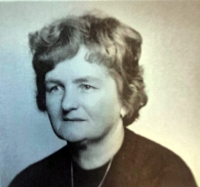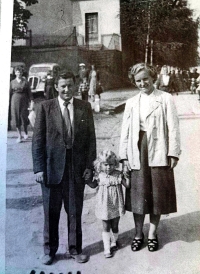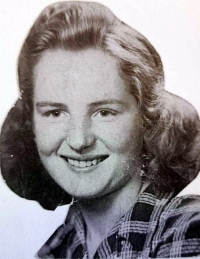The war took the life of my uncle and my cousin’s husband

Download image
Anna Lakomá, née Sedlářová, was born on 19 April 1932 in Olomouc as the youngest of three children. Her father Jan Sedlář, a trained bricklayer, worked as a brewer at the Prostějov brewery, while her mother Anna Sedlářová was a housewife. The family lived in Haňovice near Litovel. Her mother’s brother, Bedřich Vogl, a tailor from nearby Nasobůrek, joined the Petráš resistance group in 1943. He was arrested and killed during an interrogation in Olomouc in September 1944. Even František Ryšavý, the husband of her cousin Anna Lakomá, a radio mechanic who installed the so-called Churchill devices in radios, which enabled listening to foreign radio broadcast, did not escape arrest. He was executed for his activities in April 1945. Anna Lakomá went to an elementary school in Litovel and completed a one-year apprenticeship course, then joined the tractor station in Haňovice. She also worked at the STS branch in Senica na Hané and at Karosa National Enterprise. In 1952, she married Stanislav Lakomý, a bus driver from Cakov. They raised two daughters, Stanislava and Hana. In 1951, Anna Lakomé’s eldest brother, Jan Sedlář, died in an accident while serving in the military. In 1988, Anna Lakomá, by then already retired due to a disability, moved to a home for the elderly in Náměšt’ na Hané, where she was residing at the time of the interview (2023).






